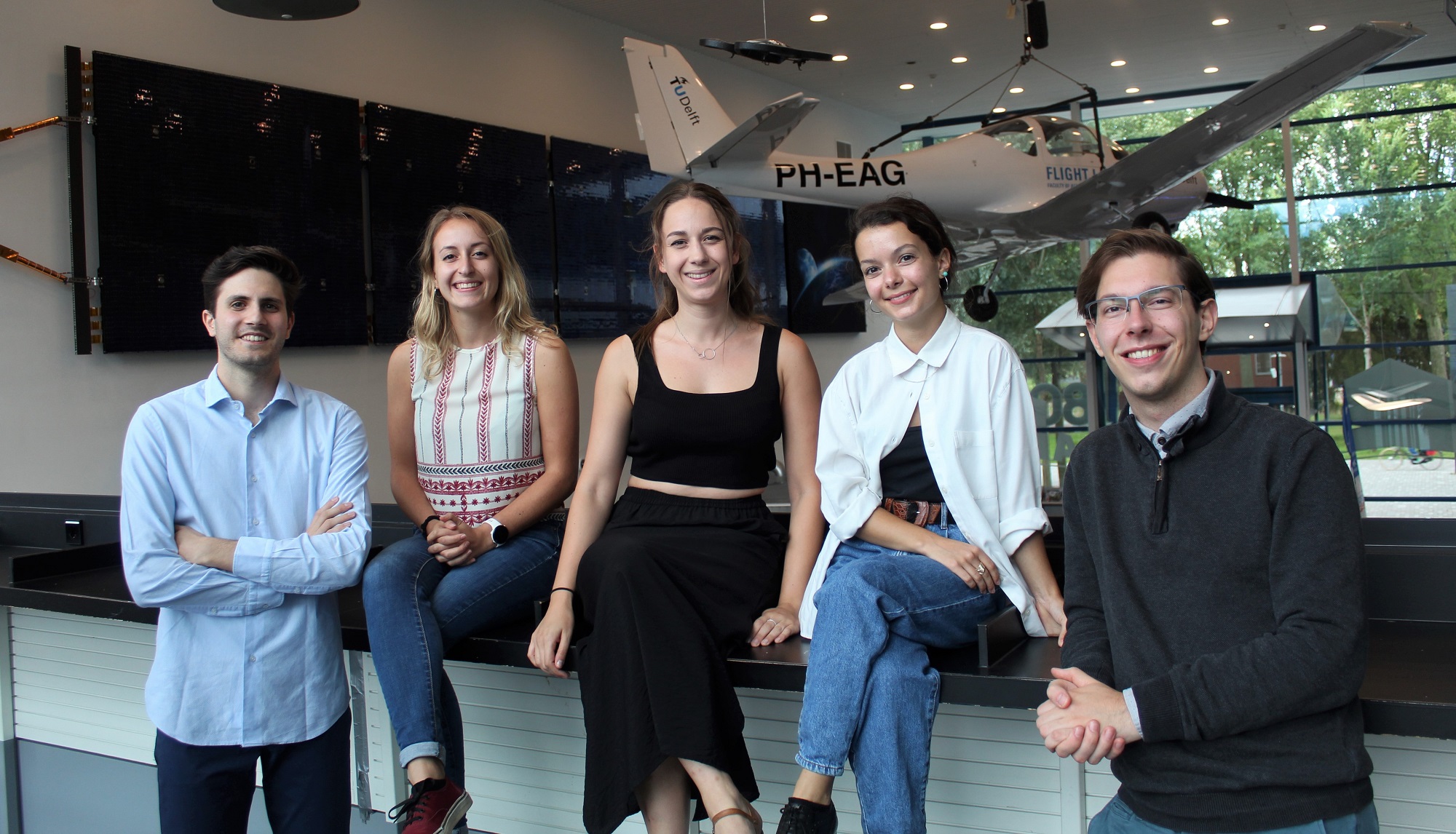How do you manage space debris and make the space sector sustainable? Master’s student Benedetta Cattani and Ecosmic are working on it.
Photo from left to right: Salvatore Vicinanza, Benedetta Cattani, Mireia Leon Dasi, Gaia Roncalli and Frank de Veld.
“In the space sector, the issue of sustainability is becoming more and more prevalent. Ecosmic was created to answer this growing need of making space missions, space equipment and space services more sustainable. For the space field this has a twofold meaning. First of all, we can be more sustainable for the earth environment. For example, by trying to decrease the impact of climate change or usage of water and resources. But on the other side there is also the growing issue of space debris, which are artificial objects that have been left in space and that are traveling at extremely high speeds. This means that they are very dangerous for other satellites, but also for manned missions that are currently in space such as the International Space Station.
Ecosmic was born from the idea that we can try to create solutions to these problems. With a team of six, formed by students and some recently graduated young professionals, we are working towards providing consultancy services to reduce the environmental impact of space missions and equipment for the benefit of the earth environment. We are also working on a product that will allow us to reduce the number of collisions that happen in space.
Currently, there are sensors, in particular radars and telescopes, pointed at space that look at what is orbiting out there. For the objects that are observed, their positions are propagated in time to see if they will collide in the near future. Then the probability of this collision is assessed. If it is higher than a certain threshold then an operator can decide to manoeuvre the object to decrease that probability. We are developing software that will perform this probability evaluation using an innovative method. It will suggest a collision avoidance manoeuvre that can be performed if necessary.
‘‘We want to reduce the number of collisions in space’
The idea behind the consultancy part of Ecosmic is that space manufacturers would give us information about their product, facilities and supply chain and then we would identify their environmental hotspots and suggest ways to reduce them. This is for the benefit of the earth environment.
I am one of the three co-founders. Altogether we are five students from TU Delft and one designer from Paris who is our graphic designer. We are part of the Aerospace Innovation Hub which is a cluster of new teams and start-ups working on aerospace projects.
I would be thrilled to keep working on Ecosmic after I graduate. I’m excited both about the idea of embedding sustainability into space missions which is I think is a dream job for many people working in space, but also by the idea of working on our own project that we created from beginning to end with people who are my friends.
This whole thing started when one of the other co-founders and I participated in a start-up competition. We had to pitch our idea and we won with the consultancy part of Ecosmic. After that we got inspired by the fact that someone else also believed in us and it grew. The thing that surprised me the most about this is how much TU Delft helped us with this endeavour. I think other people that may want to start their own project or start-up should know that there is a whole network ready to help them.”
-
- The other members of the Ecosmic team include: Gaia Roncalli, Frank de Veld, Salvatore Vicinanza, Mireia Leon Dasi and Sacha Berna.
Want to be featured in Humans of TU Delft? Or do you know someone with a good story to tell? Send us an e-mail at humansoftudelft@gmail.com
Heather Montague / Freelance writer



Comments are closed.